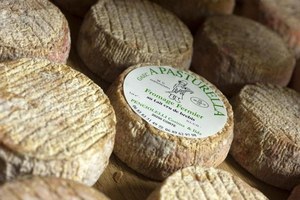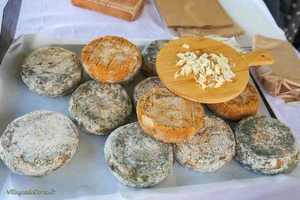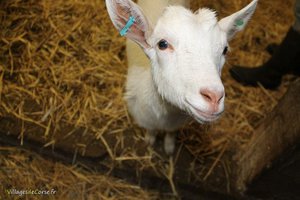- Activities
- Gastronomy
- Cheese factory
Corsican Cheese - Our Producers
See the list:Artisanal cheese shops
Goat cheese and sheep cheese
Corsican farmhouse cheese is made from goat or sheep milk. Comparatively, sheep's milk is twice as fatty as goat's milk, but goats produce about twice as much milk as sheep. For an equal amount of milk, more cheese is made with sheep's milk than with goat's milk. As for the taste, goat cheese is milder than sheep cheese.
Generally, the breeds are Corsican sheep and Corsican goats, but some goat breeders opt for Alpine goats due to their more docile nature and longer lactation period.
Fresh or aged cheese
Some regions have a particular know-how that has given a geographical name: Niulincu, Sartinese, Venachese (note the Venaco fair each year), Bastelicacciu, or Calinzanicu, the latest to have obtained its appellation. These Corsican cheese appellations are listed by the u casgiu casanu producers' association.
We can list the Corsican cheeses from the freshest to the oldest:
- The Brocciu (brousse in Corsican) is a whey cheese, which is consumed fresh, at the end of the meal with sugar. It is also used in many sweet recipes (fiadone) or savory recipes (scheccette).
- The fresh cheese is sold on the day of its production to a few days after, it is a soft and melting cheese in the mouth, the only ingredient added is salt. It is white, heavy because full of water, and rich in proteins.
- The aged cheese is fresh cheese that has been left to mature in a cellar between 1 month and 3 months. It is the quintessential Corsican cheese, with character, and a slightly brown crust.
- The Corsican tomme is a pressed cheese, with a long maturation period of up to 1 year.
- The casgiu merzu "rotten cheese" is famous on the island, especially for its worms that play their role.


